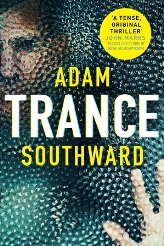
I found philosophy to be the most fascinating yet the most dangerous subject to study as an undergraduate. Fascinating, in that it freed my mind to explore all the ‘big’ questions, unburdened by any necessary practical application, but dangerous in that it unleashed a curiosity and willingness to argue that lasts to this day.
Now, I’m not a total pain - I don’t argue like I used to. Age has brought a wisdom (aspirationally, at least) best summed up by Dr. Dyer’s famous quote "when given the choice between being right and being kind, choose kind.” However, this wasn’t always the case. Take me back a decade or so and I would I would argue anything and everything, partly because it was fun (for me, not for anyone else), but also because philosophy taught me to unpick and examine everything - probing and testing for validity, for logic and for meaning. The simple suggestion that a person did something ‘bad’ immediately triggered a response in my head of ‘bad by whose value system?’
I don’t do that anymore (out loud), but when it came to writing high-concept thrillers, the same triggers still existed, and their influence found their way into my characters and the rather terrifying situations they find themselves in.
Machiavelli never actually said ‘the ends justify the means’ (his use of language was far more sophisticated and drawn-out) but the idea of consequentialism - that the consequences of actions are the ultimate basis for any judgment about the rightness or wrongness of those actions - was at the back of my mind when writing Trance and the rest of the series. Without offering any spoilers, a few of my characters do terrible, terrible things, adamant in their belief that the end is justified - ‘evil for the greater good’, at least in their eyes. And I don't think they’re wrong (arguably). Writing their characters and backstory came surprisingly easily (perhaps too easily…) but that’s because I was able to frame it in those terms: as an ethical consequentialist, what will give me the best outcome?
This type of decision is made every day by millions of people whether we like it or not. Animal testing is a great example of how the ends (safe drugs for humans) are used to justify the means (testing the early versions on non-humans), and the arguments for and against will persist for as long as we continue to do it. Doing that early testing on humans, and what happens when it goes wrong... well, that’s a fascinating origin story to explore!
The question of nature vs nurture is another well-trodden philosophical avenue that I loved studying, and a natural extension of the above. We’ve come a long way since the early philosophers - even John Locke (17th Century), thought our minds were blank slates upon which experience writes. Nurture is everything, nature nothing. Modern science will give a much more sophisticated and nuanced answer and I don’t claim to know the latest (but if I were to steal a sentence from Psychology Today it would say that ‘the nature and nurture domains are hopelessly interwoven with one another’). From my point of view (and again, no spoilers), I simply wanted to explore what happens if you subject people to unspeakable things at a young age - what kind of people would that create? Would those nurtured minds be impossible to fix? Would their actions against those responsible be wrong? (hint: those responsible thought they were doing it for the right reasons).
Trance is the first in a series that focuses on the mind (that’s not a spoiler either, it’s on the cover), and there’s nothing more fun or horrifically complicated than philosophy of mind. It was the hardest subject to study, by far, which isn’t surprising given how intricate the human brain is, and how little we really know about it. I’m reliably informed that neuroscience has long overtaken philosophy in the exploration of the mind (albeit with a different focus), and is making scary progress. However, it is still “the most complicated object in the known universe” (Dr. Michio Kaku) which means it is ripe for exploitation by those of us who understand very little neuroscience but love to create a good story!
Probing the limits of the human mind becomes the driving force behind my main character in Trance. As a psychologist, damaged minds are Alex Madison’s livelihood, but in Trance he stumbles across something altogether unique - a mind so twisted and tormented that it transcends his current understanding and practice. It’s precisely because the human mind is so complicated that it’s so much fun to imagine what would happen if we stretch it this way and that, experimenting and exploring the possible abilities and psychological conditions that would appear.
It’s easy to get carried away, but delightful fun to do so and that, I hope, is what will keep the readers entertained!

Trance by Adam Southward is published on 1st July by Thomas & Mercer (£19.99 hardback)
PRAISE FOR TRANCE
“A brilliantly original idea with a terrifying villain at its heart.” Claire McGowan author of What You Did
“Trance is a creepy, dark, and highly original debut. I couldn’t put it down!” Victoria Selman, CWA Dagger Award shortlisted author of Blood for Blood
ABOUT TRANCE
His victims are powerless. He is in control. This is his revenge— and he’s only just begun.
Three university scientists are found dead in a gruesome murder-suicide, and the only suspect in the case, Victor Lazar, is quickly captured. When the spate of violent suicides follows him to prison, he is moved to solitary confinement, reserved for the highest-risk inmates. And then his assigned psychologist inexplicably takes his own life.
Alex Madison, a former forensic psychologist turned private therapist, is brought in to interview Victor. He suspects that Victor is controlling his victims, somehow coaxing them into a suggestive trance. It seems like science fiction, but as Alex digs deeper he uncovers a frightening reality of secret research and cruel experimentation—and the perpetrators are closer to home than he could ever have imagined.
Too late, Alex learns the true extent of what Victor is capable of and who he’s after. With everything he holds dear at risk, can Alex take control of a dangerous mind—before it takes control of him?